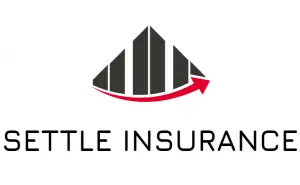“This post may contain affiliate links, if you click a link we may earn a commission if you purchase from that merchant.”
Buying a home is referred to as the single largest financial investment that most people make. As compared to all of the research, time, and effort that goes into buying a house, purchasing homeowners insurance is all too often an afterthought.
However, homeowners insurance requires more consideration because the correct policy will save you money in the event of a major disaster.
This guide will walk you through what you need to know before buying a homeowners insurance policy. We’ll also assist you in determining whether or not you need homeowners insurance and, if so, how much coverage to get.
We’ll go into what a standard policy covers and what it doesn’t, as well as what add-ons are available and what optional coverage you may want to consider. Finally, you’ll discover how to choose the right homeowner’s insurance provider and policy for your needs and budget.
Table of Contents
Why do you need home insurance?
Natural disasters such as hurricanes, cyclones, and earthquakes often cause significant property and human loss. A home insurance policy will cover the loss or harm to your home as a result of such events. Aside from natural disasters, a home insurance policy also covers damages caused by man-made hazards including fire, robbery, and vandalism.
Homeowners need this type of policy because:
- They are required to carry it by their mortgage lender.
- They need liability insurance.
- They need assistance in rebuilding or repairing their home after it has been destroyed by a covered cause such as a fire.
- They’ll need a way to replace their belongings if they’re lost or stolen due to a covered event.
Homeowners who do not have insurance will be forced to pay enormous repair costs. A new roof will cost anywhere between $5,346 to $10,645. Imagine having to pay so much money out of pocket after a storm. You just have to pay a deductible (usually about $500) for your new roof if you have home insurance.
What should my homeowner’s insurance policy cover?
Many home insurance plans, according to the National Association of Insurance Commissioners (NAIC), have at least six parts that describe different forms of coverage. If you’re asking, “What does home insurance cover?” read through all six parts to get a better understanding of your coverage options.
Section A: Physical damage to your house
When your home is severely damaged by a covered cause, Section A explains how much you will be compensated. Many people believe that their homeowners’ insurance covers flood damage, but most standard plans exclude flood damage. Check with your insurer to see which causes are protected.
Check to see if this section allows you to cover the entire cost of rebuilding your house. The insurance provider will not pay you more than the sum listed in this section after you consent to the agreement.
Section B: Physical damage to other structures
Other structures on your property are included in this clause. Sheds, detached garages, and fencing are examples of this.
Section C: Personal property damage
The things you keep in your home are covered in Section C. This can range from high-end stereo equipment to clothes for your children. You have some versatility here, just as in Section A, so choose a coverage amount that makes you feel relaxed. If your home is burglarized or severely damaged, your policy should be able to replace everything you own.
Section D: Additional living expenses
Section D outlines how much money you will get from your insurance provider if you are forced to leave your home due to a covered cause.
Let’s say a Fire does substantial damage to your home and fills it with smoke. During home renovations, your family will have to stay in a hotel. Since you won’t have access to your kitchen, this section determines how much money you will get for those extra expenses, such as your hotel bill and restaurant tabs.
Section E: Comprehensive personal liability
Section E provides comprehensive liability protection to shield you against the financial consequences of a claim if someone is injured on your property or if you or a member of your family damages someone else’s property. If your neighbor slips and falls on your icy stairs, for example, or if your daughter throws a ball through the neighbor’s window, it will help you cover the expense of a court case.
Section F: Medical expenses
Section F of your insurance policy protects you from medical costs if anyone is injured on your house. If Section E assists with legal matters, Section F may be able to cover the hospital bill. In 2019, the total cost of an emergency room visit was $1,589, so this is a significant aspect of your coverage.
How much does homeowners insurance cost?
The cost of your policy will be determined by you. That said, knowing some averages can help you shop informed. In the United States, the average homeowner spends just over $1,220 a year for their insurance policy. The amount you’ll pay is mainly determined by where you live. Natural disaster-prone states, such as Florida and Louisiana, which have a high hurricane risk, pay considerably more. With an average annual premium of $3,575, Floridians are the most expensive homeowners in the nation. Homeowners in states that are insured, such as Idaho and Utah, pay around $600 a year for their insurance.
Is homeowners insurance worth it?
For many too many homeowners, insurance is yet another sheet of paper to sign and put away, never to be considered again. That is, until disaster strikes. People who wait until they have a loss before reviewing their plans are not getting the maximum benefit and maybe getting very little value from their countless premium payments.
Homeowners’ insurance is financial responsibility, but it should also be seen as a living, breathing organism that needs to care for over time.
Also Read: Homeowners Insurance Policy: Essential tips & info know before Buy
Exclusions under a Home Insurance Policy
Home insurance, like all insurance plans, has certain exclusions. This, however, varies from business to company.
- Nuclear activity/radiation causes damage or loss.
- Insurgence or civil war.
- A military assault has been launched.
- Termite infestation, cracks in the wall, and other minor damages
- Terrorist assault.
- Intentional damage


































